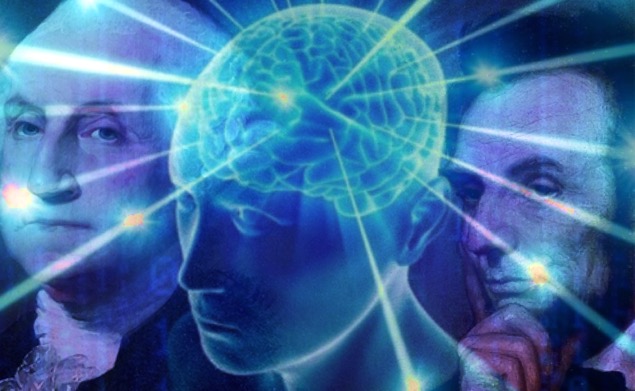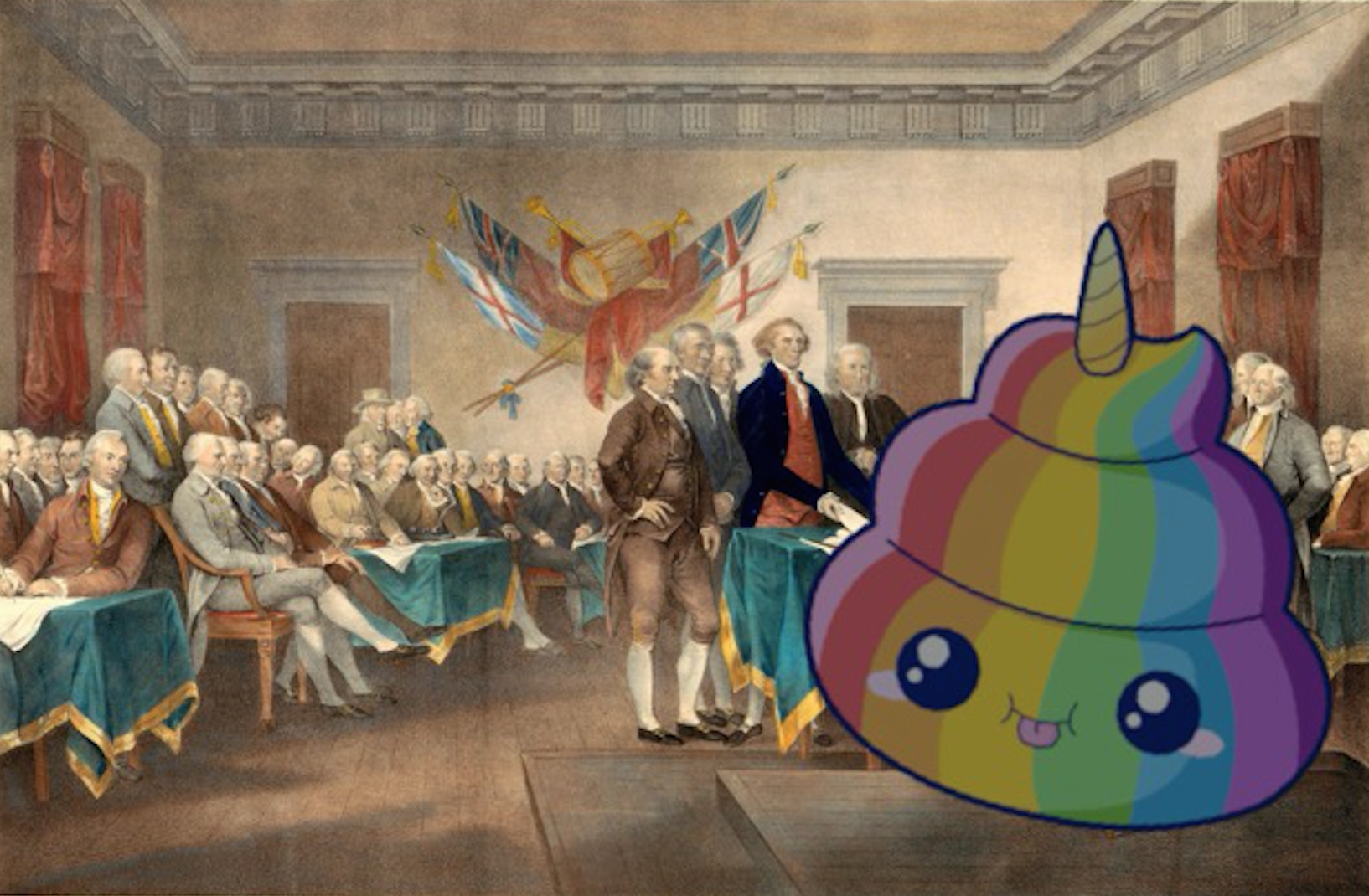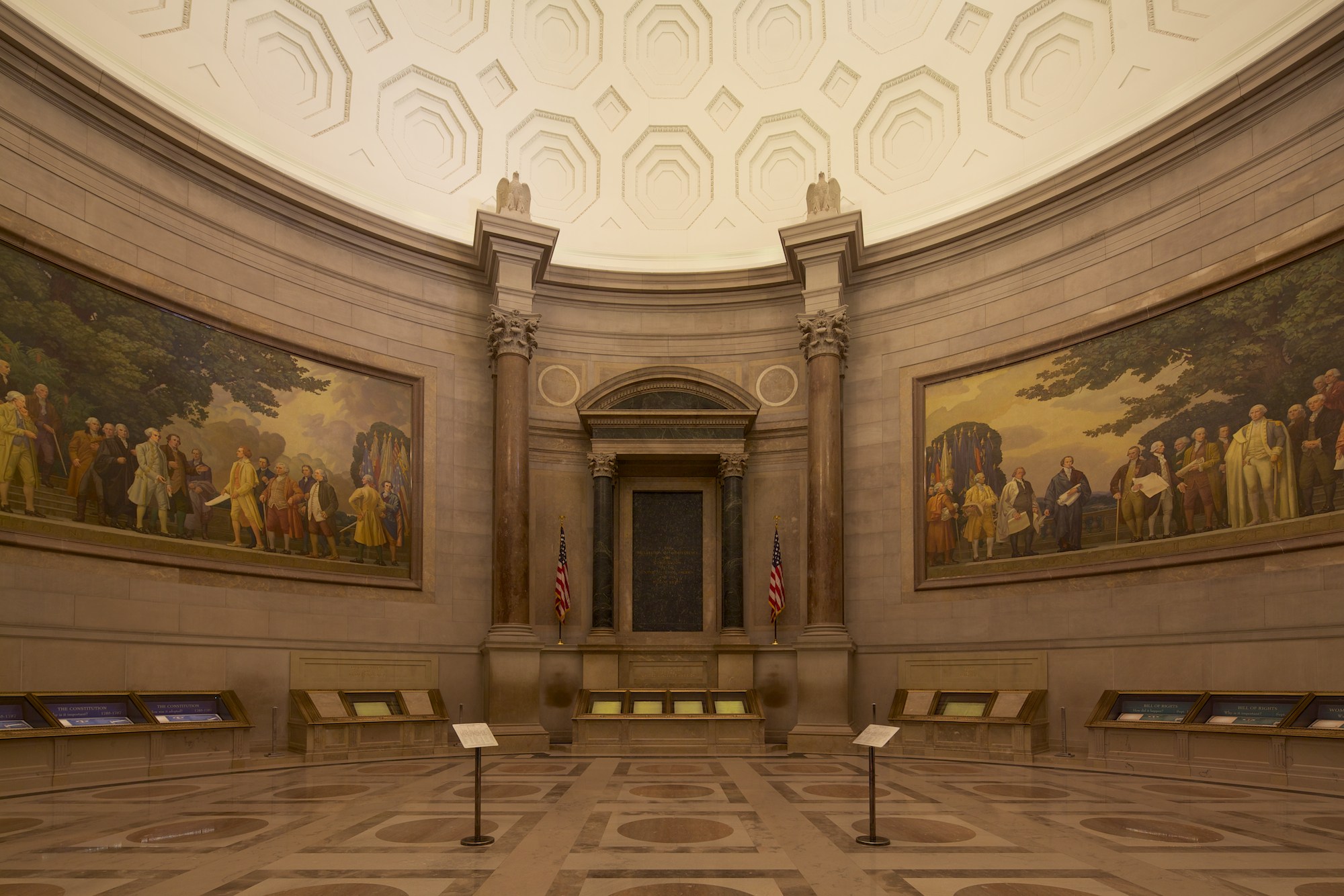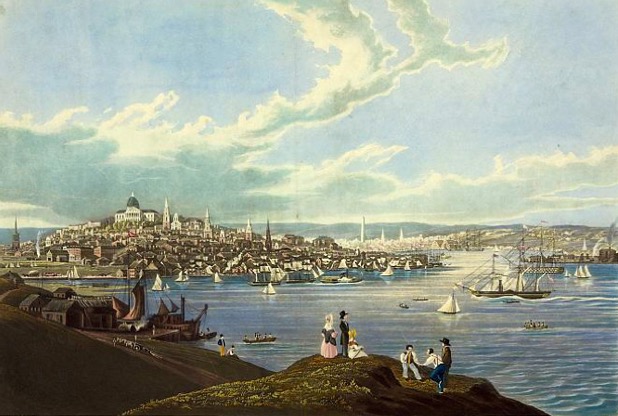Today's fights on the Right benefit old wisdom and new thinking alike.
Retrieving Greatness for a Digital Age
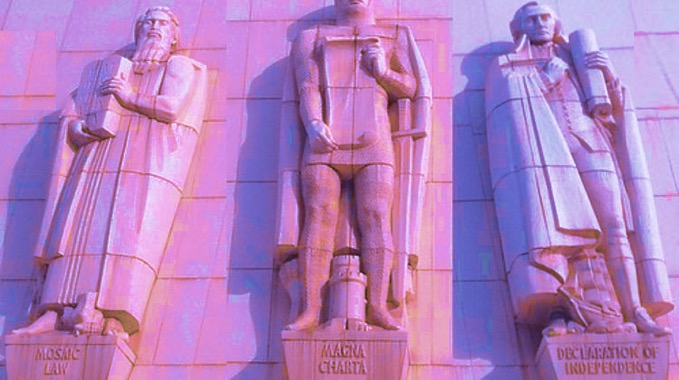
A technological transformation is behind the rise of the New Right.
Today’s remarkably deep and swiftly expanding debate on the Right is caused by the rise of digital technology to a formative position in our psychological and social life. Already, the perceptions and sensibilities of Americans have been reshaped so profoundly by our new digital environment that critiques of mainstream conservatism which could not gain traction just a few years ago now command the initiative.
These developments are at the leading edge of a wholesale transformation of Western politics. “So much of what holds the identity of the ruling class together,” I explained in my essay introducing The American Mind, is “the product of its rise to power in a shared context that digital technology is destroying.”
More than just a change in the status or content of conservative or liberal identity and ideas, Americans are experiencing and responding to an obsolescence of the shared psychological and social environment shaped by pre-digital conditions—and the retrieval, under digital conditions, of pre-modern patterns of perceiving and feeling out our human reality. The return of these patterns of apprehension is causing a fresh understanding of the greatness of the good of all to come into view.
The Case of the Mysterious Apocalypse
Many on the established Right fear their world will be destroyed in the unfolding new era unless they cling tight to their ideology. Conversely, some on the New Right are all but convinced the revolutionary Left has destroyed the ways of life conservatives tried and failed to protect. A careful look at the nature of the digital transformation, however, gives credence to a different forecast. The triumph of the digital augurs a return to a popular politics of the common human good, one in which modern or postmodern ideological frameworks and rhetorical contests are plowed under and deactivated.
While there are some glimmers of understanding of these dynamics in the public square, confusion and anxiety largely hold sway as the established but now destabilized Right struggles to make sense of how the Left has morphed as digital conditions set in.
In recent remarks about the Right’s new internecine conflict, Ross Douthat traces its origins to the (pre-digital) shift in the status of conservative Christians from a secure and centrist majority to “a clear minority in a country with no religious establishment, and a religious center best defined as Gnostic/Prosperity-Gospel/Pantheist. (Or Oprah/Osteen/Tolle.)” Many Christian intellectuals during the Obama years, says Douthat, “assumed that this failure required cultural retreat”—along the lines of Rod Dreher’s so-called Benedict Option—”and creative-minority attitudes and support for pluralism.”
“But then,” Douthat notes, “the West seemed to enter into a social/political/metaphysical (?) crisis…and suddenly the range of cultural/political possibilities seemed to widen. And so some conservative Christians decided that maybe retreat and pluralism wasn’t the only option, even as hardening liberal attitudes made them fear that option wouldn’t work.” Hence the sudden upsurge on the Right—led by Sohrab Ahmari and others—of unashamedly militant approaches to fighting and winning control over the character of America’s regime.
While this new turn is unquestionably significant, its content, to borrow a formulation from the media theory of Marshall McLuhan, is not as important as its context—because, as McLuhan and his son Eric persuasively explained, contexts are formative causes of the content within them. The parenthetical question mark in Douthat’s description of our sudden crisis of identity indicates a mystery to be solved and provides a clue to the nature of the mystery itself. Asked if he was an optimist or a pessimist, Marshall McLuhan replied that, rather than either of those, he was an apocalyptist. In the Greek, an apocalyptist is simply one who reveals or uncovers; translating over into Latin etymology, the word for such a person is a detective. Amid panicked cries of one impending political apocalypse or another, people on the Right—and not just the Right—seeking to come to grips with the present transformation are best served by first taking the detective’s approach, in distinct contrast to the rhetorician’s.
This approach will surmount the impasse warned against by Jim Antle, editor of The American Conservative, in his assessment of the stakes in the conflict touched off by Ahmari and David French. “People on all sides of the ideological spectrum are convinced that their respective political parties are led by losers and weaklings who are failing to represent them,” Antle writes. “It is not clear that the more genteel approach favored by conservatives whose careers rely on liberal toleration is well equipped to handle this fraught environment, even if the unbridled assholery prevalent on the alt-right offers no solution either.” Antle himself is being a bit gentle: it is increasingly self-evident that genteel conservatives cannot hold their own against today’s revolutionary Left.
Yet the reason for this failure is not simply ideological or hormonal deficiency. Rather, the context sustaining the political-philosophical content beloved of the established Right has been ripped away and replaced.
The Media Ecology of Liberalism
Reflecting in a recent conversation with me on the Ahmari-French war of words, National Review Online contributing columnist Dan McLaughlin proposed what he called “a kind of secular Pascal’s Wager: if David is wrong that we can preserve the classical-liberal order and heritage of the Founders, then we’re doomed no matter what other strategy we might adopt.” At Claremont, without question, the retrieval of a politics of the common good rooted in the natural and theological anthropology of the Founding is considered essential to any successful foray into American statecraft. That kind of politics is still essential, even and especially under digital conditions, because the psychological and social environment in which now we live forms a new context that strips away the relevance and potency of the content of “classical liberalism.” This phrase, in truth, refers to a modern electric age ideology abstracted out of one particular strain of liberal practices conducted under the print conditions of the early-to-mid-modern era.
To explain further: in Europe, the advent of print—what McLuhan called “the Gutenberg galaxy”—was a catastrophe. It unleashed metaphysical crisis on an untold scale, presenting a foundational emergency to which political theorists scrambled to respond. The nature of this crisis, to which early modern theorists ranging from Hobbes to Locke were forced to respond, was that print destroyed the psychological, social, and therefore the political stability of Western regimes grounded ultimately in the perceptions and sensibilities formed by the medieval liberalism of the coherent, cohesive trivium: grammar (script), dialectic (thought), and rhetoric (speech). Print unleashed and democratized a seemingly limitless rhetorical conflict—a pandemonium of all words and interpretations against all.
In America, however, the print era did not have such devastating effects. Here, the modern liberal theories of Scottish and French Enlightenment writers in the vein of Adam Smith to Benjamin Constant—where open discourse and open commerce led together toward functionally limitless knowledge and harmony—were perceived as anthropologically reasonable and politically feasible reflections of the trajectory of psychological and social life. In America, print shaped a shared environment wherein the Declaration of Independence and the United States Constitution could articulate and formalize the common sense of the common good, and instantiate a stable model for the rising democratic republics of the western world.
As print conditions gave way, however, to electric conditions (first radio, then televisual), “classical liberal principles” took on an increasingly Millian cast (“free markets are the only valid economic form;” “public argument is the only way to arrive at the truth”) and became increasingly abstract, losing sync with people’s perceptions and sensibilities of anthropological reality. Electric conditions accelerated and worsened the fracturing and deconstruction of the liberal trivium that print had begun in Europe. Electric technology shaped our souls according to the supremacy of image, illusion, and imagination. Whosoever could attain mastery in fantasy could achieve mastery of men.
Electric conditions gave unbalanced dialectic and rhetoric a rampaging new autonomy. The logical order of communication allowing for direct transference of meaning—Grammar—was all but destroyed. In The Laws of Media, Eric McLuhan identifies the absurd evil of modern phenomenology (think Hegel, Heidegger, and the postmodern deconstructionists who flowed in their wake) as an “all-out attempt to invent—or turn itself into—grammar, to force some sort of ground to surface.” Under electric conditions, the triumph of imaginary imagery over logos, the grammatical order of the written word, privileged this deranged dialectic and, at the same time, pushed rhetoric to distorted extremes.
In the West, the perniciousness of elevating speech over logos was known to us from almost the beginning; according to Aristotle, as Michael Anton pointedly observes in his Restatement on Flight 93, “the Sophists identified or almost identified politics with rhetoric. In other words, the Sophists believed or tended to believe in the omnipotence of speech.” This, Anton argues, is “a near-perfect description of modern conservative intellectuals, or at least of their revealed preferences;” but it is also an apt expression of what has become of modern liberalism, which came to believe under electric conditions that logos was dead or false but sought anxiously to find our salvation from illiberal dialectic through the perfection of the city in speech.
We can now grasp today how “classical” or modern American liberalism has been turned, queasily but only half under protest, against liberals themselves, and indeed against the very definition of liberalism itself. If all politics is is rhetoric, including liberal politics, then to protect the liberal political order speech must not be free.
In sum, then, the secular Pascal’s Wager of the French side of the internecine debate on the Right is based on faulty grammar: the supposed “classical-liberal order” and “the heritage of the Founders” are not as tied together as they may at first appear. In fact, the heritage of the Founders, which is the heritage of “the liberal” as the trivium’s anthropologically and psychologically well-ordered unity of word, thought, and speech, is a uniquely Western tradition of pre-modern liberalism. This is the tradition that provided the ground, among the American people, for the figure of the Founding—a new order that stably located the modern, print-era political content of natural rights within a psychological and anthropological context that reached back to the pre-print, scribal era of the Magna Carta (remember, both the Declaration and the Constitution were illuminated manuscripts, inscribed by hand on scrolls).
As Aristotle, Harry Jaffa, and now Ryan Williams, in his remarks on today’s situation, remind us, natural right is not immutable and unchanging from the point of view of human beings, for our circumstances are mutable and changing. It is not to be expected that its content in the context of the print era would have the same contours as in the electric era—indeed, as Woodrow Wilson and Franklin Roosevelt’s understanding or rejection of natural rights amply show, it certainly was not. And once again, today, it is glaringly apparent that natural rights in the context of unfolding digital conditions will not be the same as what came before.
The Digital Dynamic of American Renewal
This terrifies Left liberals, who see Trump as hauling America toward neofascism even as their revolutionary dialecticians and rhetoricians coerce them into genuflecting before the idols of an official woke religion. It terrifies “classical” liberals on the Right, who fear the New Right proffers only theocratic illiberalism even as “classical liberalism” itself becomes a dead creed that must be imposed on “heretical” nonbelievers. And, notably, it also disturbs some of those across the New Right, including the likes of Anton, who find it almost unthinkable that digital technology could overpower in a countervailing way the complete transformation of our country into a post-American regime where natural rights are reduced to a right to self-identification, no matter how bizarre, held by servile humanoid pets under the rule of queerist technocrats.
Against all these fears, reasonable as their content may be under electric conditions, I submit that the reformation of our souls under the digital actually holds great promise for retrieving the coherence and viability of the common-good anthropology that made, so to speak, America great.
In his Restatement, Anton (rightly) objects that his critics think he is wrong to the point of madness. “I am said to be insane, and my insanity is supposedly evident from my contention that things are really bad, when in fact they are not that bad.” Though some may feel the same way about what I myself am about to say, I’ve grown convinced since Trump’s election that Anton’s dire view is true, yet, in the sense I am developing here, also misleading. “I would be overjoyed to read a convincing account of why things are not that bad,” he writes, “why—despite appearances—the republic is healthy, constitutional norms are respected, the working class and hinterland communities are in good shape, social pathologies are low or at least declining, our elites prioritize the common good, our intellectuals and the media are honest and fair. Or, if that’s too big a lift, how about one that acknowledges all the problems and outlines some reasonable prospect for renewal? But only if it’s believable. No skipped steps and no magical thinking.”
My view is that, indeed, an optimistic account of the present situation is too big of a lift, in the sense that any bogus fantasy is too difficult to pull off. But in a similar and related sense, my view is also that despite all those problems, and indeed even to some degree because of them, there is a reasonable prospect for renewal. At a breakneck pace, the triumph of the digital is reshaping our perceptions, our sensibilities, and our souls in a manner causing us all to recognize the bogus fantasies of our embattled electric-age elite as bogus and as fantasies.
It is no longer the case that if you master the illiberally fantastic arts you can master men; that official memes broadcast to the masses can govern them through mind control under the illusion of “choice;” that those expert at dreaming most purely can, through technology, turn their dreams into universal reality. It is no longer the case that people’s imaginations can be captured by the electric-age ruling class in such a way as to conscript them into sharing the utopian vision of one world of autonomous individuals united in harmony and uniformity under secular but none the less sacred management.
What else can explain the ruling class’s insistence that—despite its disastrous record over the past twenty-odd years; despite its total inability to forecast or prepare for any of the profound geopolitical changes wrought under the dawning digital age; despite the replicability crisis destroying the credibility of science, and the collapse (as Judea Pearl observes in The Book of Why) of the very basics of cause and effect undergirding modern science itself—they must be given all the money and power they need to take command and control of the Earth’s climate, because otherwise we will all die?
What else can explain the growing certitude among the ruling class that social justice demands a woke artificial intelligence equipped with a comprehensive social credit system—one that can perfectly reallocate and redistribute material, cultural, psychological, and political debits and credits in real time, without the blemish that stains all human works—despite the reality that such an AI would demand more energy to build and power it than their emissions regime can allow, or the planet can produce?
What else can explain ruling-class convictions that journalists who communicate securely and confidentially are saving democracy, while citizens who do so are destroying it? That ordinary Americans cannot be trusted to use their own smartphones, but meritocrats forced to kneel before the altar of post-gender gnosticism and the throne of egregore occultism must alone be trusted to determine which memes are good and which evil?
Making a detective’s investigation into the strange mystery of the West’s recent and unfolding “metaphysical crisis” leads us to conclude that the sudden triumph of digital technology has caused people to perceive that the mode of rule constructed around them is ineffective, counterproductive, illegitimate, and obsolete. We can also see that the things about our phones which are most distasteful or harmful to us are the things that are the most televisual. No one complains about being “addicted” to Google Maps or Gmail or Google Search, and no one fears that we use Venmo or WeChat or Wikipedia or bank online because those nasty tech nerds have “hacked our brains.”
Our phones are proof that the era of rule by experts of human imagination is crashing down, and that a new era where rule is reshaped by the preeminence of machine memory is coming online. Imagery and fantasy are losing prestige and power—behold the weakening of Hollywood, the corruption of the “studies” departments in academia, the crumbling of the ad industry and its attendant clickbait companies, and the gathering exodus from social media to the private chat—and identity and biography are gaining salience and resonance. The panicking elite is putting maximum pressure on the platforms to ensure Trump is not re-elected, and the platforms are flailing in an effort to show progress, but the cultural shift unleashed by the digital transformation is here to stay.
The great “who” questions—who are we? who am I?—can no longer be cast out, channeled away or colonized by make-believe essentialist fables. Instead, they summon forth the fundamental distinction between us and the digital entities we must now share our world with: we are living creatures, and they are not. We cannot and so must not be ruled as if we were analogous to inanimate material objects; we must rule us, as the incarnate, ensouled human creatures we are. By disenchanting the electric-age elite’s system of rule by the most ethical dreamers, digital technology has put reality literally back at our fingertips.
After Utopia
The result of all this is that pre-modern liberalism—the restored trivium, the common good, robustly exercised sovereignty delimited by the just purposes of government—is rushing into the political and philosophical space created by the implosion of established, abstract modern conservative principles on the Right. Their institutional guardians find it unthinkable, and therefore terrifying, that Firing Line is no longer a viable model of how to defend them. The modern conservative mainstream arose from the confident certainty that, with enough expertise in rhetoric, the Right could save what needed saving by entering the arena of the televisual broadcast and honorably winning public contests in speech, not just fair and square, but with aplomb and élan. And even still, some on the New Right are inclined to see online rhetoric as just the next twist on Firing Line Buckleyism, with new content in an old context.
But the reality is the reverse: old content in a new context. In fact, McLuhan tells us, an obsolesced media context becomes mere content in the new context that replaces it. And in the digital context, televisual content is on a path of diminishing influence. While it is important not to cede all televisual terrain to one’s political opponents, even in a transitional time such as this, it is even more important to recognize that the impact of the changing digital environment—in America and across the West—is and will remain far more sweeping and consequential than what even the most clever and ambitious political communicators can achieve. The resurgence of combative populism, economic nationalism, political theology, and the scribal authority of the Magna Carta Libertatum is not happening because the intellectually diverse and influential thinkers on the New Right have changed their content, but because the context we all live within has changed, and their content has gained new resonance and complementarity with the challenges—and even more importantly, the reality—of our time.
Likewise, the nostrums of the mainline Right have, like so many churches of mainline Protestantism, been emptied of their original content. At the consummation of the pre-digital age, “free trade” agreements became encyclopedias of corporatism and breeding grounds of regulatory capture; the “private sector,” a laboratory of social engineering with naked designs on the public square; “economic growth,” a blessing for the limitless financialization of commercial life and the limitless concentration of finance. Even “capitalism” itself, as Jordan Peterson seemed to reveal in his recent debate with Slavoj Žižek, now appears as insufficient as “socialism” to account for what is wrong with the plutocratic utopian “ethics” enforcers of Big Tech. In ostensible disagreement about our prospects for happiness, Žižek suggested “we will probably slide towards apocalypse,” and Peterson concurred: “it is not obvious to me that we can solve the problems that confront us.” Perhaps the real problem is the intransigence of elites who cling bitterly to concepts that no longer square with our percepts.
In my view it is in one sense odd, but in another not so odd, that established elites on the Right are finding themselves in a pessimistic mood despite having carved out felicitous lifestyles in the sunny uplands. “To most young adults,” David Brooks writes in his column on the present ferment, the “tendencies” of the New Right “will look like cloud cuckooland.” Without more “optimistic” rhetoric, he warns, America’s rising generations will reject the Right root and branch. Claims that “we can communicate across difference,” or that “the American creed is the right recipe for a thick and respectful pluralism,” or that “American structures are basically sound and can be realistically reformed,” he worries, are “not visible.” But, of course, from the standpoint of the Claremont Institute and others on the New Right, those are exactly the claims now being advanced—just not in the thinly and ineffectually modern liberal manner that Brooks and his fellow class-mates too often alone seem capable of trusting.
Put differently, Jonah Goldberg is absolutely right that “intellectuals” wrongly “think they can somehow plan and direct the consequences of technological innovation to achieve a society that fits their theories about how everyone should live.” The trouble is that Goldberg and his fellow class-mates fall into just this trap. “Free market, “classical liberal” principles are not now up for question because of meddlesome intellectuals, but because under digital conditions it has become clear to ordinary people that those “principles” have come unglued from reality. They have failed to forestall a broad, steep slide into compounding ruin, under the supervision of an exceedingly (until recently) comfortable, self-satisfied, wealthy, and “principled” elite.
That’s why, on the scatterplot of the 2016 electorate now making the rounds online, the upper left quadrant, economically “left” and socially “right,” is full of people, while the bottom right quadrant, economically “right” and socially “left,” is about as empty as an abandoned cruise ship. Of course, the point of the matrix is that these labels themselves no longer make the sense they did in pre-digital times. That elite, confronting the “unthinkable,” responds by doubling down on its abstractions, and insisting that only the adoption of its ethics can save the world. Established intellectuals demand a return to a power that has lost its potency, and a time that isn’t coming back.
The real significance of the unfolding debate on the Right is not about the Right alone but about all of us. The recent brief statement of New Right aims “against the dead consensus” reflects that the panicking institutional vanguard now trying to sweep back the sea of digital life is not merely anti-conservative or anti-Christian, but is corralling all types of Americans into narrow, barren fatalism under pretense of Potemkin autonomy. The kind of liberalism that will serve our truly common good better than this sham and flickering dream-life is not entombed in the amber of the modern age. Like the liberalism of the Founders, it reaches deep into the West’s past—and will thus remain coherent and fruitful far into its future.
The American Mind presents a range of perspectives. Views are writers’ own and do not necessarily represent those of The Claremont Institute.
The American Mind is a publication of the Claremont Institute, a non-profit 501(c)(3) organization, dedicated to restoring the principles of the American Founding to their rightful, preeminent authority in our national life. Interested in supporting our work? Gifts to the Claremont Institute are tax-deductible.
Moral and religious neutrality undermines the basis of American law.
The New Right renews Americanism.
The New Right must reassert a vision of justice rooted in the common good.
The American Founding was not based on “neutral principles.”
The Ahmari-French debate is just the beginning.

